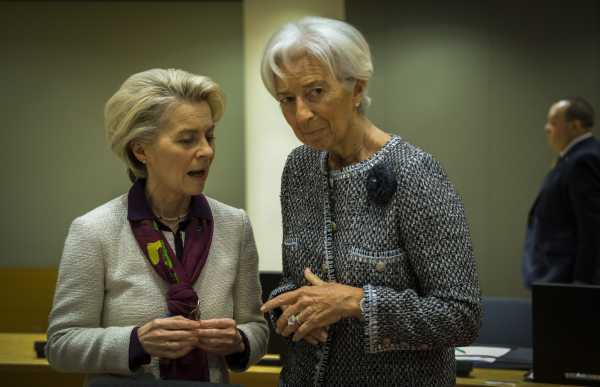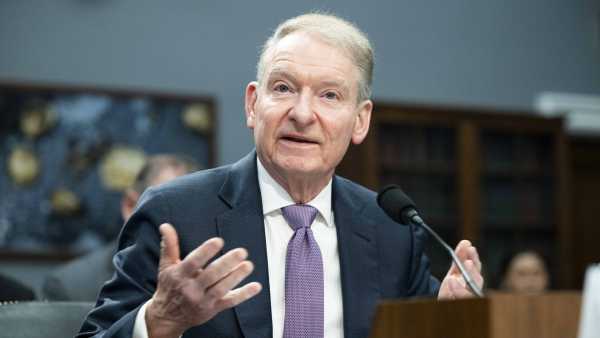US House Committee Advances Stablecoin Bill as Democrats Warn of Conflicts with Trump
US House Committee Advances Stablecoin Bill as Democrats Express Concern Over Trump Clashes
While many Democrats on the House Financial Services Committee voted with Republicans to advance the bill, they expressed concerns about the Trump-linked stablecoin.
Jesse Hamilton | Edited by Nikhilesh De Updated April 3, 2025, 7:18 pm Published April 3, 2025, 2:47 am
Key points:
- Lawmakers on the House Financial Services Committee voted Wednesday to advance a stablecoin bill to the full House after a lengthy debate on amendments.
- Many Democrats expressed concerns about US President Donald Trump's intervention in the stablecoin space, although the STABLE bill ultimately received bipartisan support.
- The House committee followed the Senate committee's lead in advancing its own stablecoin legislation.
A major milestone was reached in U.S. stablecoin legislation on Wednesday, as a House committee joined its Senate counterparts to advance the bill to the full House, bringing stablecoin regulation closer to fruition.
Final approval by both the House and Senate would clear the way for lawmakers to combine the two versions into a single measure that could pass. Republican lawmakers and President Donald Trump aim to complete the work by August.
While the crypto industry and its staunch Republican allies in Congress cheered the many Democrats who backed the Stablecoin Transparency and Accountability for a Better Ledger Economy (STABLE Act) before the House Financial Services Committee on Wednesday, Democrats on the panel repeatedly expressed concerns about Trump’s ties to the space. Still, six Democrats backed the bill, along with 26 Republicans on the committee, after a lengthy session to discuss it.
A week before the House committee focused on the bill on Wednesday for debate — a session where lawmakers make changes and debate amendments — Trump-linked World Liberty Financial (WLFI) announced support for its own stablecoin (USD1). Trump has been heavily involved in cryptocurrency, including selling non-fungible tokens (NFTs) and the $TRUMP memecoin, despite his push for crypto-friendly policies at the federal level.
Regulating stablecoins in the U.S. — typically dollar-pegged tokens like Tether’s USDT and Circle’s USDC — is one of two key policy priorities for the sector. And committee chair French Hill argued on behalf of the industry that “innovation needs guardrails, not barriers.”
Republican members have shied away from discussing President Trump’s involvement in the space in any clear terms. When Waters and other Democrats proposed changes to address potential conflicts caused by the president’s business interests and his direct authority over regulators making decisions about stablecoins, their proposals were rejected by the group’s Republicans, who repeatedly called such protections “unnecessary.”
“We do not discriminate against entrepreneurs based on their identity or background,” Hill said. If the government wants clear restrictions in this area, he has repeatedly argued that the best step would be to pass legislation that establishes oversight.
Representative Maxine Waters, the top Democrat on the panel, said Trump “used the power of the presidency to create multiple cryptocurrency schemes to enrich himself and his family,” calling it “an expression of greed.”
“He’s unlike any other issuer because he’s the president of the United States,” said Representative Stephen Lynch, the ranking Democrat on the panel’s digital assets subcommittee, who argued that Trump would be able to sign off on any government bailouts needed for his own business interests if they failed. “If it were a Democratic president trying to do this, Republicans would be outraged, and rightfully so. That shouldn’t happen.”
Another Democrat, Illinois Rep. Sean Casteen, said Tron’s Justin Sun invested tens of millions of dollars in WLFI without any obvious benefit beyond his connection to the Trump family. He argued that government officials involved in stablecoins could be influenced by foreign investors in ways that are not subject to public scrutiny.
The Democrats' arguments failed to change the Republican majority on the committee, so no
Источник



